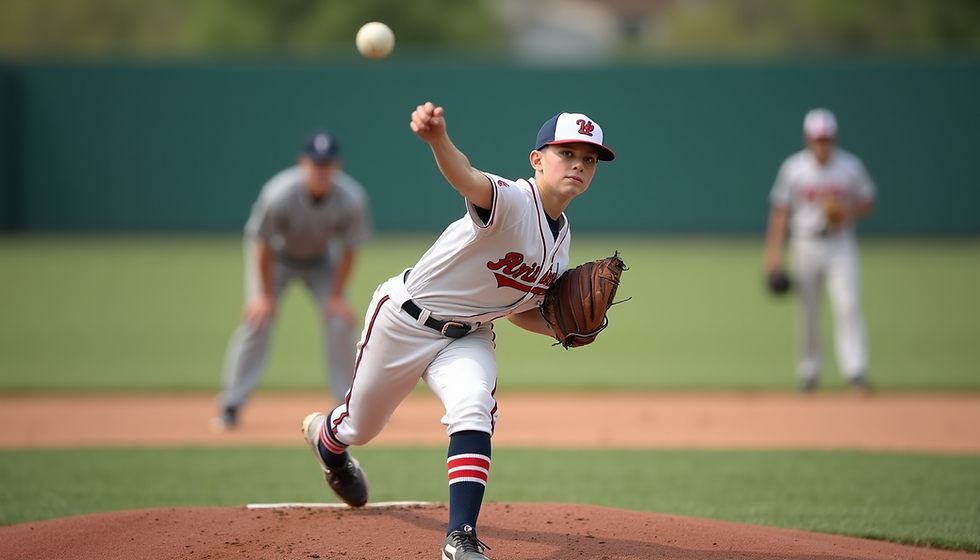How to Learn Situational Baseball: Turning Practice into Game IQ
- May 2, 2025
- 2 min read
Updated: May 6, 2025
One of the biggest differences between a good ballplayer and a great one is their understanding of situational baseball. Anyone can develop a swing or throw strikes, but players who think the game, who understand what to do in any given moment, are the ones who truly stand out.
What Is Situational Baseball?
Situational baseball means knowing what to do before the ball is hit. It’s about strategy, anticipation, and decision-making. Whether it’s knowing where to throw the ball with one out and runners on base, when to tag up, or how to handle a bunt with two strikes, these are all “situational” decisions that come up every inning.
Why It Matters
Players who know the game are:
More reliable in high-pressure moments
More coachable, because they anticipate instruction
More valuable, because they make teammates better by leading with their minds and voices
Situational awareness is often what separates players who succeed at the next level from those who plateau.
5 Ways to Learn Situational Baseball
1. Watch the Game Differently
Whether it's a televised MLB game or a sibling's Little League match, start watching baseball like a student. Pause the game mentally and ask: What should the infield do if the ball is hit on the ground? Should the runner go on contact? Predict what should happen, then see what actually does.
2. Break Down Scenarios in Practice
Great coaches don’t just hit ground balls and throw BP, they pause to walk players through why we do things a certain way. If you're a coach or a player, make time to go over:
Infield in vs. back
Cutoff priorities
First-and-third defense
Bunt situations
Tag-up decisions
Repetition builds muscle memory. Explanation builds IQ.
3. Simulate Game Speed
Run live or modified scrimmages where the focus isn’t on hitting or pitching, but decision-making. Let the defense know the count, outs, and base runners, and hit them balls to make them execute. Don’t just say, “bad throw.” Pause and ask, “Where should the ball have gone?”
4. Talk the Game
Baseball is a language. Players who talk through situations: “Where are we going with one out?” or “Let’s go two if it’s hit hard!” start thinking faster and reacting smarter. Communication isn’t just for the dugout; it builds leadership and reinforces knowledge.
5. Take the Mental Reps
You don’t need a field to learn the game. Build mental muscle by:
Watching YouTube breakdowns
Taking quizzes (yes, we post them!)
Drawing out situations on a whiteboard or notebook
Asking “what if?” questions during team meetings or car rides
Final Word: Be a Student of the Game
At Beach City Baseball Academy, we tell players: Don’t just practice, study. You don’t have to be the fastest or strongest player on the field, but you can always be the smartest.
And when the pressure's on, smart players win games.




